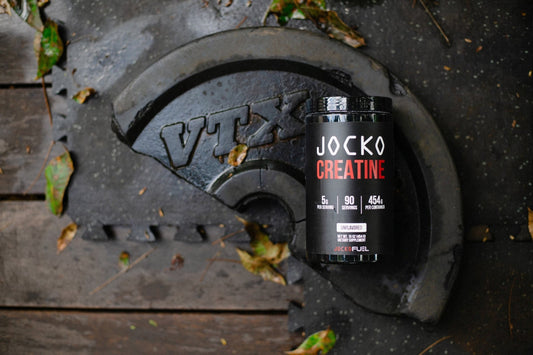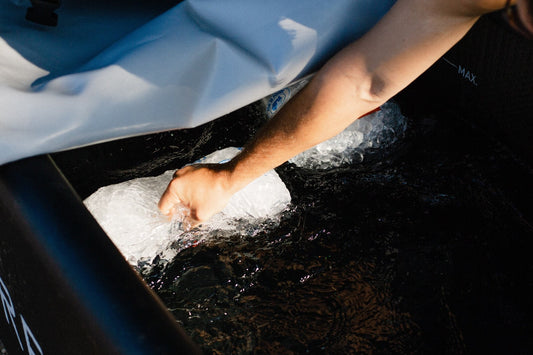
Hydration: Water, electrolytes, and everything in between.
Share
Many of us are constantly dehydrated and don't consume enough electrolytes, which can lead to accelerated aging and a reduced lifespan. However, proper hydration involves more than just drinking water. In this article, we will delve into the essential information to help you maintain good health and stay hydrated not only during the summer but also throughout the year.
We will cover:

What is Hydration?
💧🧂
Hydration is the optimal fluid balance between water and electrolytes in the cell.
Water is essential for almost every function in the body, from regulating temperature to aiding digestion and supporting organ function. Proper hydration ensures that your cells, tissues, and organs work effectively.
Staying hydrated isn't just about drinking water; it involves maintaining a balance of electrolytes, which help your body retain the right amount of fluids.
When you're hydrated, your body can function at its best, but when you're dehydrated, it can lead to fatigue, headaches, and more serious health issues.
After just three days without water, severe dehydration can set in, leading to life-threatening problems.
How Much Water Should I Drink in a Day?
⚖️
Water Intake = Bodyweight (lbs) / 2
Everyone’s body is different, and factors like age, weight, and activity level can affect how much water you should drink. A simple way to estimate your daily water intake is to divide your weight in pounds by two. That number gives you the approximate number of ounces you should drink each day.
💦
Drink roughly 1 gallon of water per day.
For a more personalized recommendation, you can use the YUDAE macronutrient calculator on our website. As a general rule, aiming for 1 gallon of water per day is a good goal. This ensures you're staying hydrated, even if your water needs change from day to day. Hydration is key to staying healthy and feeling your best.

What are electrolytes?
Electrolytes are the minerals that keep our cells balanced with water. Electrolyte balance can be thought of as a ratio of concentration within the blood. It is measured in MEq, or milliequivalent.
1. Sodium
2. Magnesium
3. Calcium
4. Potassium
5. Chloride

Three Tips to Increase Water and Electrolytes
Merely being aware of these facts will not automatically prompt you to drink. I understand this, and you do too. Nonetheless, there is scientific evidence indicating that certain facts can increase your willingness to drink independently.
"The voluntary consumption of a beverage is influenced by its palatability, which is determined by its color, flavor, odor, and temperature." 1
It is widely recognized that culture plays a significant role in determining what is deemed acceptable to drink and what is commonly consumed. Here are three steps you can take to ensure you remain hydrated this summer.
1. Start fresh
Whatever that entails for you. Purchase a new water bottle, clean an old one, or get a recycled one.
Whatever action you choose, start fresh with the mindset that you have no existing habits and that neglecting to monitor your water intake could have serious health consequences.
Furthermore, the taste and smell of water can be influenced by the temperature of different containers, so consider these factors when selecting your next water bottle.
2. Maintain the appropriate temperature.
Another case of "whatever works for you." Personally, I prefer cold water. From a scientific standpoint, "consuming 16°C water [approx. 61°F], cool tap water, could be recommended in cases of dehydration." 2
According to research, water consumed at this temperature may be optimal for hydration as it was found to reduce and delay sweating.
However, individual preferences play a significant role for most people, so I suggest experimenting with different temperatures until you find the one that suits you best.
3. Always have a hydration packet on hand.
This is essential for any traveler or adventurer.
If you do not spend extended periods in the sun, you may not be familiar with all the options available for enhancing plain water with hydration (which I recommend as it can be customized to your liking).
Nuun hydration tablets are our preferred choice for emergencies as it dissolves quickly and is extremely convenient for travel.
Resources
[1] National Academies of Sciences, Engineering, and Medicine. 2005. Dietary Reference Intakes for Water, Potassium, Sodium, Chloride, and Sulfate. Washington, DC: The National Academies Press. https://doi.org/10.17226/10925.
[2] Hosseinlou A, Khamnei S, Zamanlu M. The effect of water temperature and voluntary drinking on the post rehydration sweating. Int J Clin Exp Med. 2013 Sep 1;6(8):683-7. PMID: 24040477; PMCID: PMC3762624.
[3] National Research Council (US) Subcommittee on the Tenth Edition of the Recommended Dietary Allowances. Recommended Dietary Allowances: 10th Edition. Washington (DC): National Academies Press (US); 1989. 11, Water and Electrolytes. Available from: https://www.ncbi.nlm.nih.gov/books/NBK234935/
[4] Armstrong, Lawrence E., and Evan C. Johnson. "Water intake, water balance, and the elusive daily water requirement." Nutrients 10.12 (2018): 1928.



